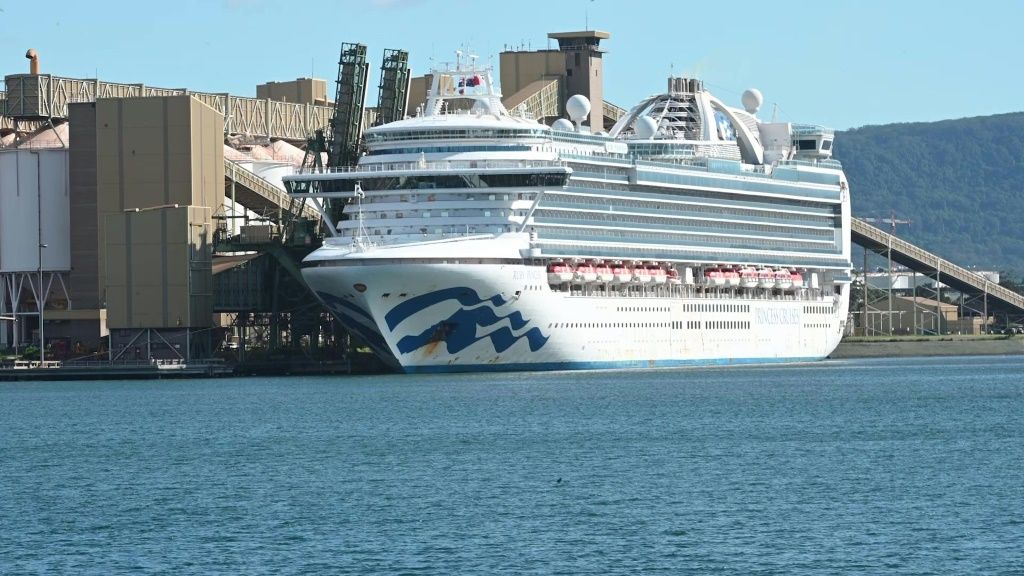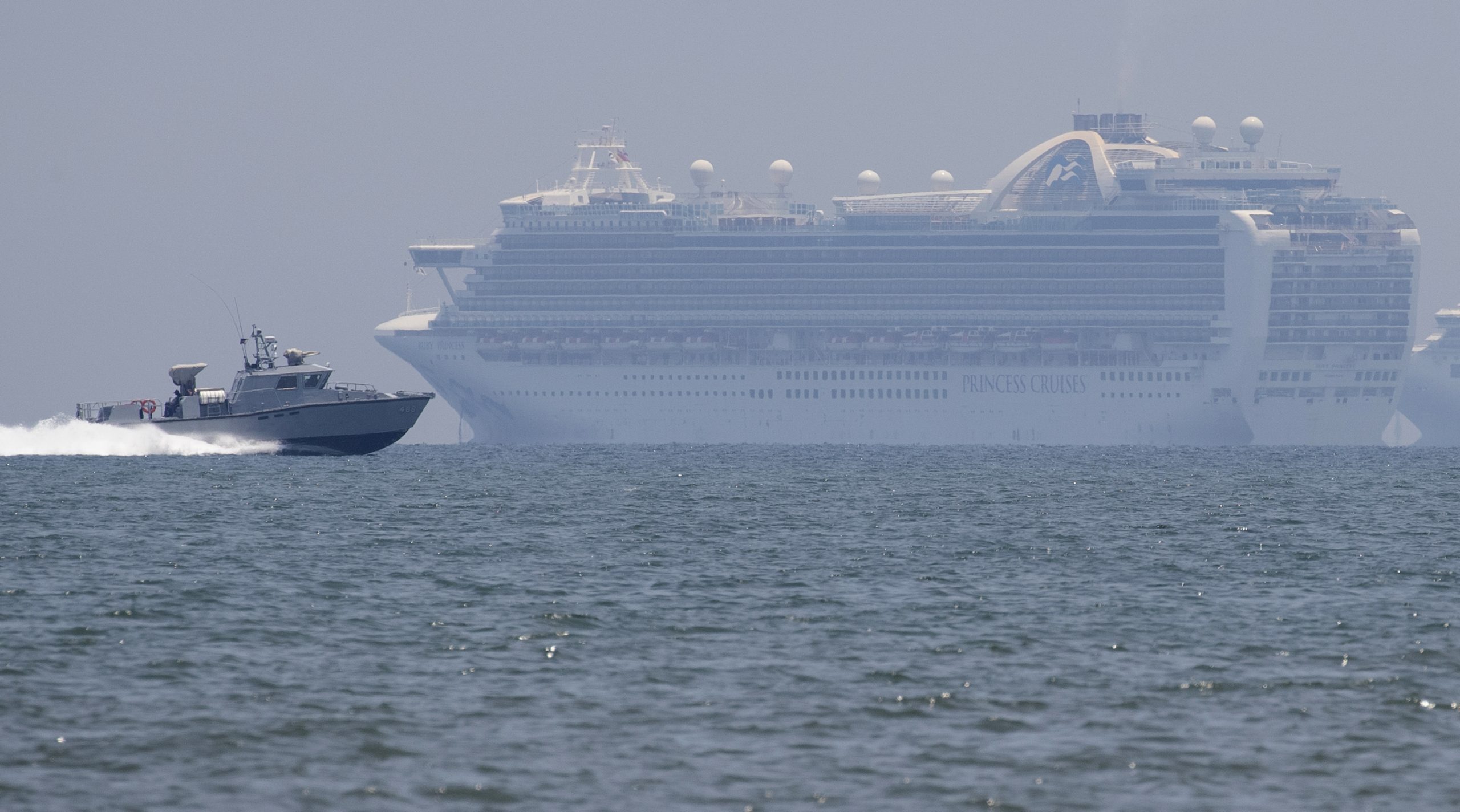
They are also required to communicate to the CDC, within 24 hours of arrival at a U.S. port, "the number of passengers and crew members who reported diarrhea to the ship's medical staff" during that voyage. On cruise ships, health officials are legally required to track any illnesses that occur, while this same reporting is not required on land. For this reason, the Centers for Disease Control and Prevention note that outbreaks are reported more frequently on sea than on land.
Best Covid-19 Travel Insurance Plans
At least 120 Cunard Cruise ship passengers fell ill from unknown cause - Business Insider
At least 120 Cunard Cruise ship passengers fell ill from unknown cause.
Posted: Wed, 31 Jan 2024 08:00:00 GMT [source]
Data on this page are from ship surveillance reports and from CDC-led investigations. Caroline Kee is a health reporter at TODAY based in New York City. An MSC Cruises representative told Insider at the time that the cruise line had launched an internal investigation based on the inspector's concerns and taken immediate corrective actions. Norovirus cases have spiked across the United States this year, which some experts say is the result of ending COVID-19 restrictions.
Seasickness
The Centers for Disease Control and Prevention (CDC) gives cruise ships a color-coded safety status — green, yellow, orange and red — based on reports of cases of Covid or Covid-like illness. The agency also indicates when there are investigations into outbreaks on ships. You can check the CDC's website for a ship's Covid status before planning or boarding a cruise.
What it means for a ship to be monitored or under 'investigation' by CDC
And even with safety measures in place, cruises come with residual risks that can't be ignored, like unavoidable close quarters and potential for breakthrough infections. For the most part, Norovirus outbreaks are the results of passengers setting sail sick ... Gray status means the ship's health and safety protocols have not been reviewed or confirmed by the CDC.

In the vast majority of people, norovirus symptoms will last several days and resolve on their own. However, as travel surges this summer, travel-related illnesses are expected to surge, as well. “I think our travel frenzy after COVID is partially fueling this continued spread (of norovirus),” says Ostrosky. Summer travel has returned and people are flocking to cruises again, with more than 31.5 million passengers expected to sail in 2023. It can survive for long periods of time on surfaces and is resistant to common disinfectants. Flu season spiked early this year in the U.S., along with another respiratory illness that can be particularly dangerous for older adults, respiratory syncytial virus, which is known as RSV.
Norovirus often isn’t just your typical I’m-feeling-a-little-sick-so-I-may-pass-on-shuffleboard type of gastroenteritis. No, a norovirus infection can consist of projectile vomiting and explosive diarrhea. Similarly, you’ve got to be careful about anything that could explode in your pants.
There are no internationally specified regulations governing ship infirmaries and medical staffing. Each company has its own standards provided for its passengers' healthcare. Find more information about gastrointestinal illness outbreaks on land and at sea. In the past 10 years, only three other cruise ships have received sanitation scores below 70, CDC records show.
COVID, Bird Flu, Monkeypox – A Virologist Explains the Surge of Virus Outbreaks Around the World

Two days later, the Centers for Disease Control and Prevention told Americans to avoid travel on cruise ships, regardless of their vaccination status. The advisory, the agency’s highest coronavirus warning, came in response to a surge in cases in recent weeks, caused by the spread of the contagious Omicron variant. For passengers with health concerns, medical care on cruise ships is a vital part of their travel planning. Most cruise vessels are equipped with either basic infirmary (a small clinic) or larger hospital where sick or injured passengers are treated and cared for by contractor physicians and nurses on 24-hour duty. The following "health advisory" list of recommended actions is often issued during gastrointestinal illness outbreak or on embarkation day (of the next scheduled voyage). It has important suggestions on how to avoid spreading the cruise ship virus infection.
Throw in the whole idea of “revenge travel” with people scrambling to catch up on travel delayed by the pandemic, and you’ve got a bunch of set ups for norovirus outbreaks. Therefore, the CDC has reports from every cruise vessel, on just about every cruise, even if there was no illness. If at any time during the cruise the number of ill passengers or crew exceeds 2 percent, the vessel must file a special report notifying CDC of the illness.
▪ While the virus has garnered the nickname “cruise ship virus,” in reality, norovirus outbreaks on cruise ships account for only 1% of all reported norovirus outbreaks, the CDC says. In fact, acute gastrointestinal illness is fairly uncommon on cruise ships, the agency says. The threat of norovirus on cruise ships is a serious issue that has both health and economic impacts.
The CDC has tracked outbreaks of gastrointestinal illness on cruise ships through its Vessel Sanitation Program (VSP) since 1994. Norovirus is also known as the “Cruise ship virus” because conditions on cruise ships can stack the deck for the spread of norovirus, so to speak. Typically, a cruise ship will have dozens, hundreds, and in some cases thousands of people sharing surfaces, objects, food, drink, and who-knows-what-else over extended period of times.
Cruise Critic members advise packing extra soap, a supply of Lysol and a bottle of Pepto-Bismol (just in case). Stick to bottled water, and don't share drinking glasses and eating utensils. Likewise, Mathis says vacationers shouldn’t let the fear of norovirus keep them from taking a vacation. Kosciolek says she has made it a practice to wash her hands before going to the buffet, and then washing them again before she eats, since buffet implements aren’t sanitized after each passenger touches them. Cruise experts say several factors may be contributing to the rise in cases. For one, cruising has soared this year, with the number of passengers expected to surpass the total that sailed in 2019, according to the Cruise Lines International Association.
Some cruise lines offer hand-sanitizer dispensers near the ship's restaurants, Lido/pool deck areas and other more crowded public spaces in their effort to keep a lid on sickness outbreaks. Obviously, the first thing is to go to the ship's infirmary (medical center) and contact the doctor. You should drink plenty of water as dehydration is a side-effect of the illness. A few years ago an experimental Norovirus vaccine (applied as nasal spray) was developed by the "Center for Infectious Diseases and Vaccinology" (Arizona State University). Travel of any kind is currently a very high-risk activity, explains Dr. Luis Ostrosky, division chief for infectious diseases at UT Health, part of the University of Texas, Houston. "And we don't have the level of vaccination we need to assure that people are going to survive if they happen to get [Covid]."

No comments:
Post a Comment